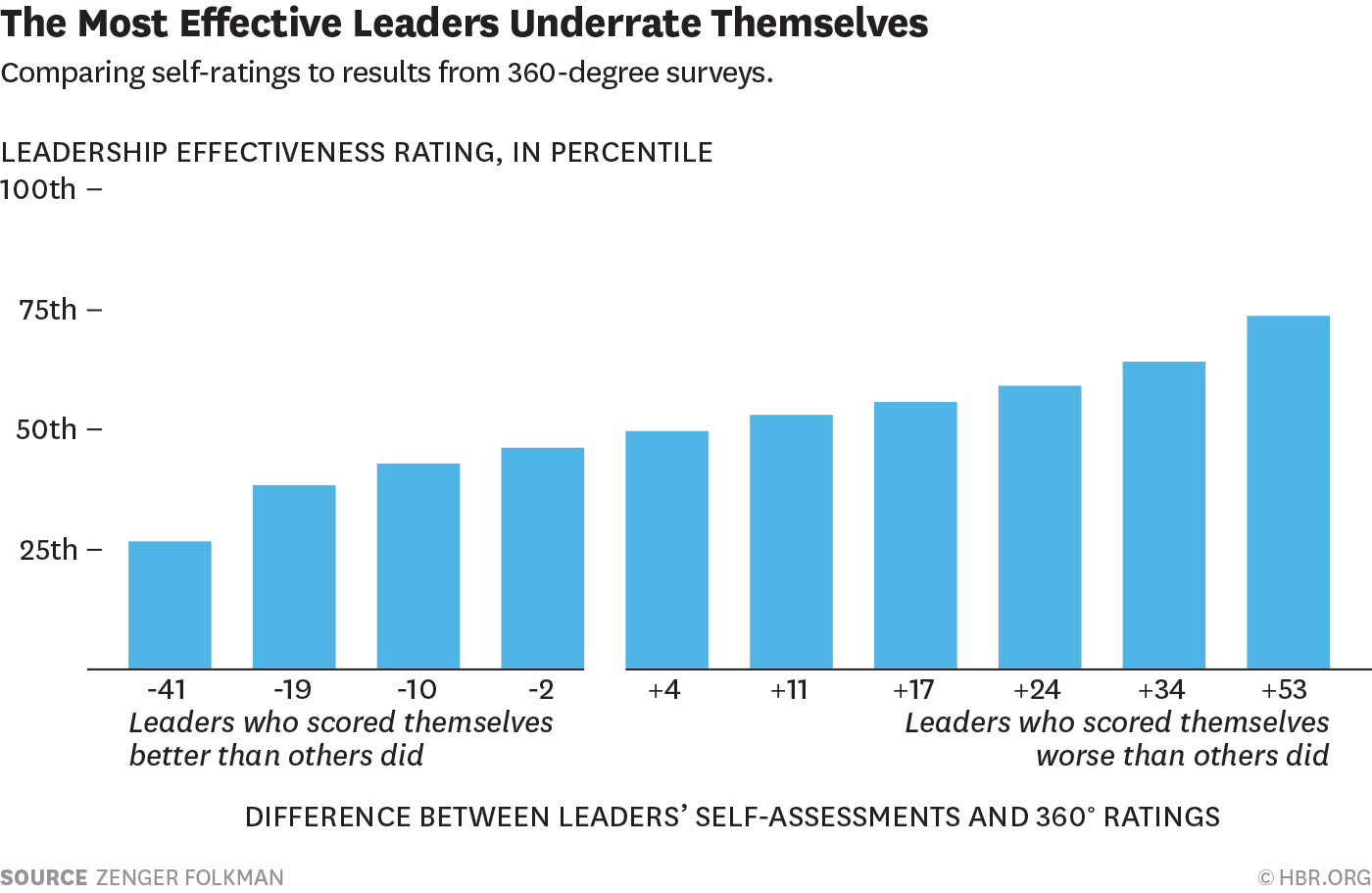Do great leaders really need self-awareness?
Stay up to date:
leadership
Self-awareness – having an accurate view of your skills, abilities and shortcomings, as well as understanding how other people see you – is broadly perceived to be an important quality – but it could make you a less effective leader.
A recent study by leadership training and development company Zenger Folkman found the best leaders underrate their abilities. Indeed, the more they underrated themselves, the more highly they were perceived as leaders.
In an article for Harvard Business Review, the company’s co-founders Jack Zenger and Joseph Folkman said they wanted to find out whether self-awareness is always a good trait for leaders to have and how many managers have it. So they delved into 360-degree feedback data describing 69,000 managers as seen through the eyes of 750,000 respondents at hundreds of firms. They found that leaders’ views of themselves generally don’t fit with how other people perceive them.
They assessed self-awareness by asking managers to rate their effectiveness as leaders and getting their bosses, peers and subordinates to do the same. To their surprise, when they measured the difference between the scores, they found that the most effective leaders did not have the highest level of self-awareness. In fact, the more they underrated themselves, the more highly they were perceived as leaders. Zenger and Folkman attribute this to a combination of humility, high personal standards, and a continual striving to be better.
They also found that under-raters had more engaged employees:
However, when managers gave themselves high leadership ratings, their bosses, peers and subordinates tended to think they were bad leaders.
“Theoretically, both overrating yourself and underrating yourself are a kind of blindness,” wrote Zenger and Folkman. “But as the data shows, they bring extremely different results.”
Zenger and Folkman are curious about why having an illusion of superiority (regardless of whether it is accurate) is so damaging to both leadership effectiveness and morale.
“Is it because this leader conveys an attitude of arrogance or complacency? Or is it because this mindset eliminates the motivation for self-development? We suspect the reasons are many, subtle, and perhaps intertwined,” they wrote, adding: “An aura of humility is always superior.”
It seems that employees value humbleness so highly in managers that the more leaders under-rated themselves, the more likely they were to be viewed as effective leaders. To find out more about managers’ self-awareness “blind spots”, Zenger and Folkman broke down the self-ratings into 16 different leadership competencies and compared them to ratings from others. The fewer competencies managers over-rated themselves on, the more they were perceived as effective leaders, and vice versa.
Their data on overrated blind spots shows the following:
Those with minimal or no overrated blind spots were perceived as being twice as effective as those with a large number of over-rated blind spots.
Is there any downside to underrating yourself? While it does not appear in the data, Zenger and Folkman think the answer is “sometimes”.
“Some of these leaders expend a great deal of emotional energy in proving themselves to others. For others, we think it also curtails their willingness to take on larger and more challenging assignments,” they wrote.
“We can see there is a strong correlation between self-awareness and the number of competencies that are profound strengths, so long as we all understand that positive self-awareness means possessing an appropriate dose of humility, too.”
Publication does not imply endorsement of views by the World Economic Forum.
To keep up with the Agenda subscribe to our weekly newsletter.
Author: Rosamond Hutt is a Senior Producer at Formative Content.
Image: A businesswoman walks in a financial and business district. REUTERS/Gonzalo Fuentes.
Don't miss any update on this topic
Create a free account and access your personalized content collection with our latest publications and analyses.
License and Republishing
World Economic Forum articles may be republished in accordance with the Creative Commons Attribution-NonCommercial-NoDerivatives 4.0 International Public License, and in accordance with our Terms of Use.
The views expressed in this article are those of the author alone and not the World Economic Forum.
Related topics:
Forum Stories newsletter
Bringing you weekly curated insights and analysis on the global issues that matter.
More on Jobs and the Future of WorkSee all
Babak Hodjat
July 11, 2025
Majlinda Bregu
July 9, 2025
Shakthi M Nagappan
July 7, 2025
Steffica Warwick
July 3, 2025
Ibrahim Odeh and Oliver Tsai
July 2, 2025








